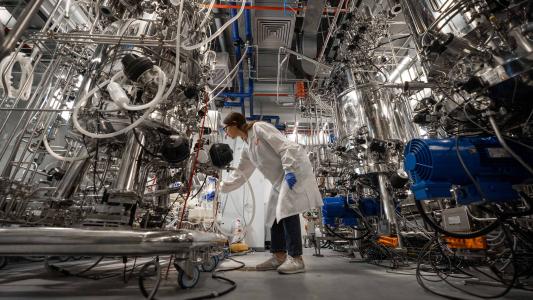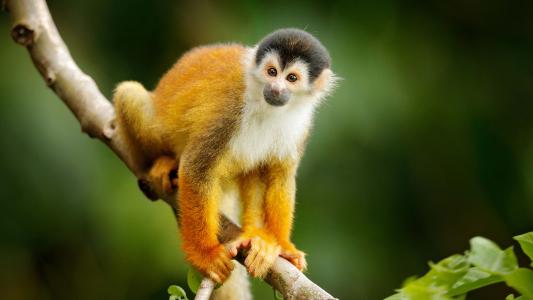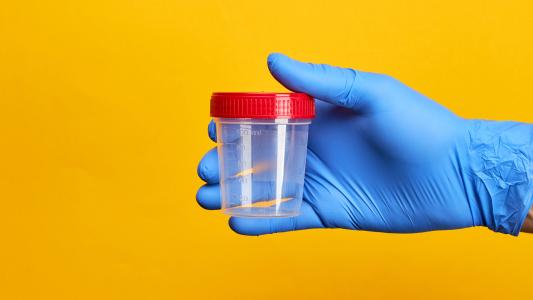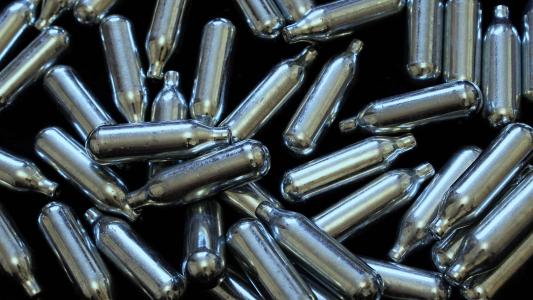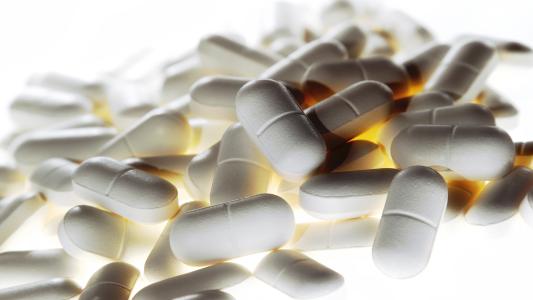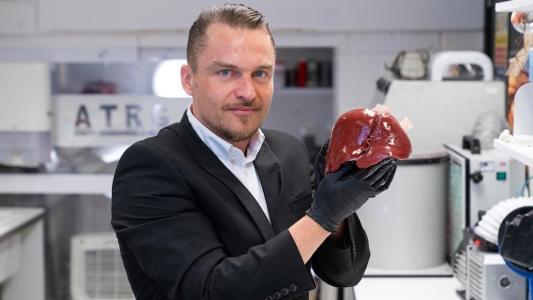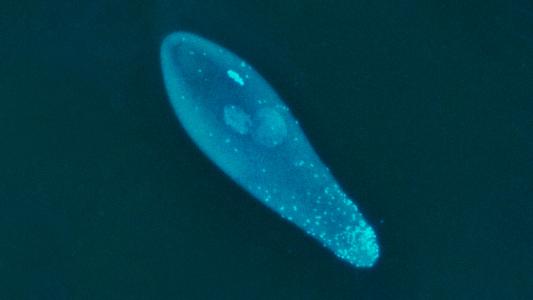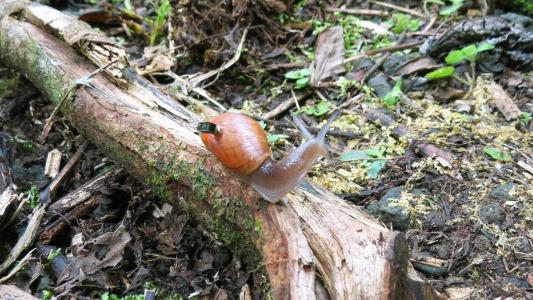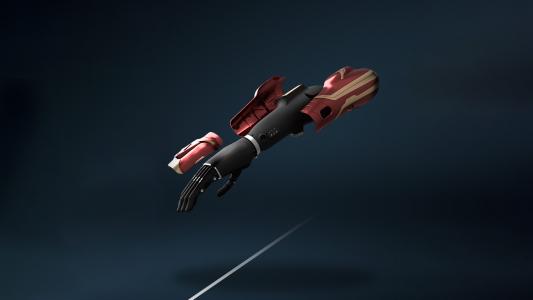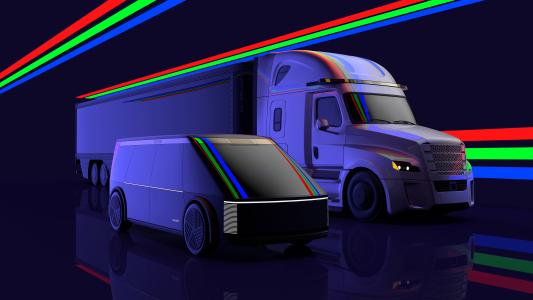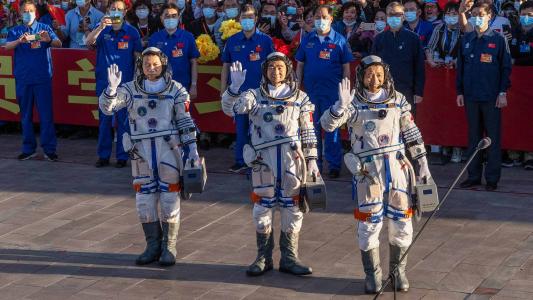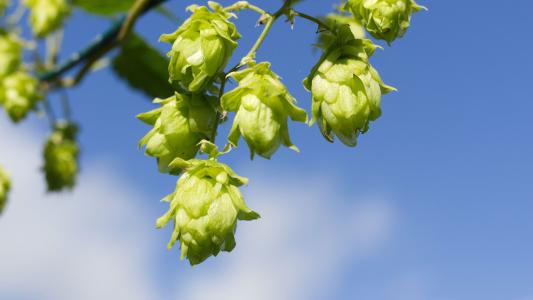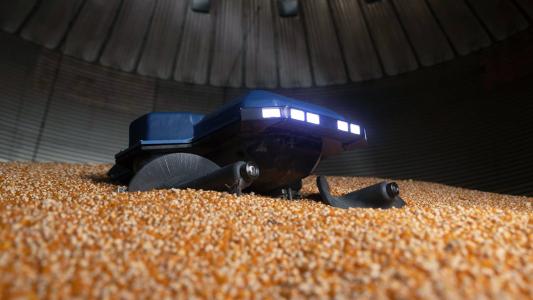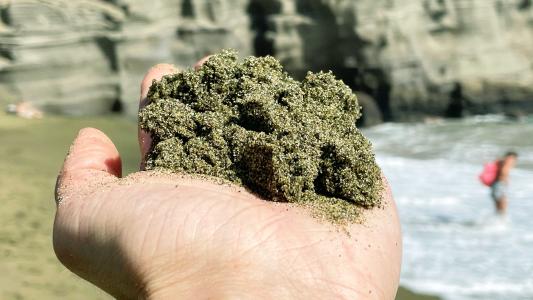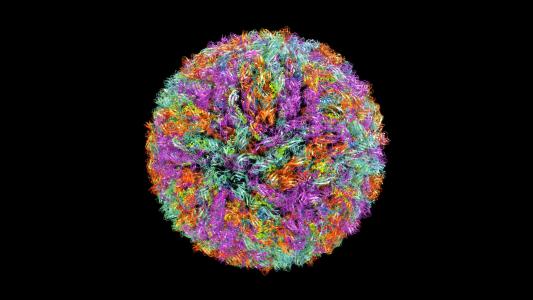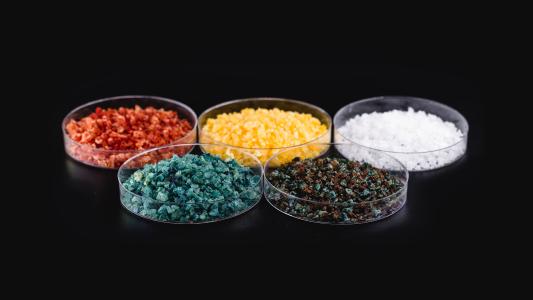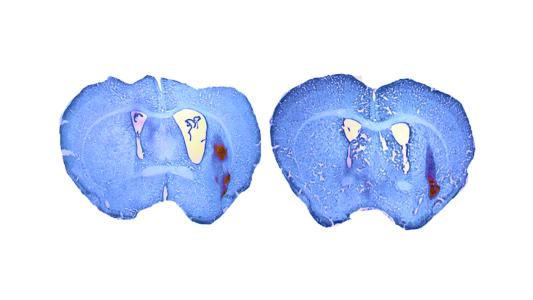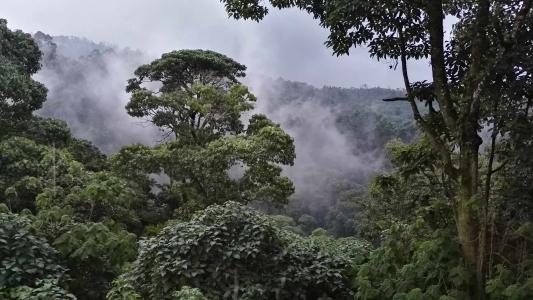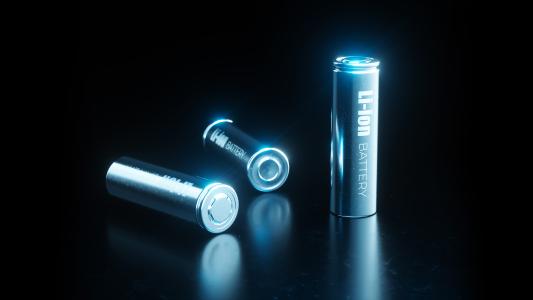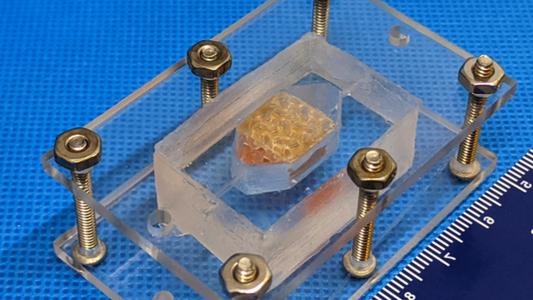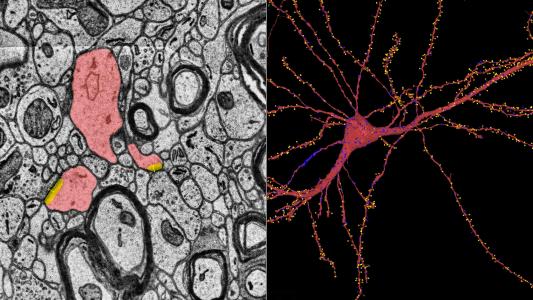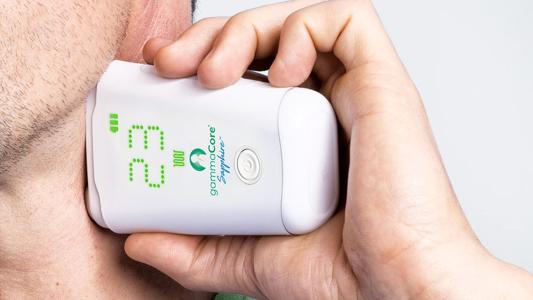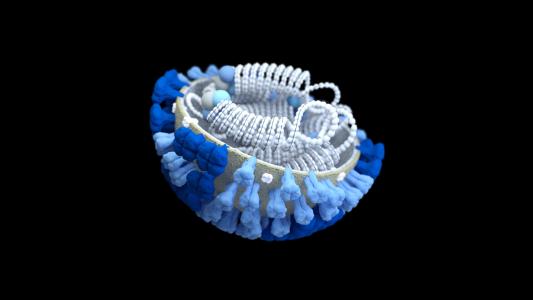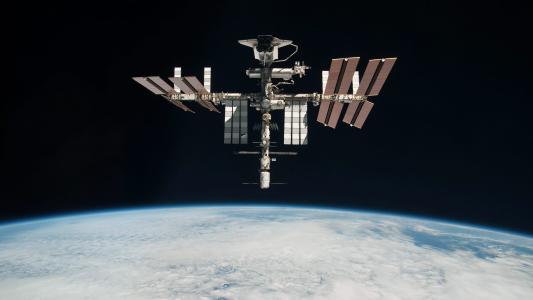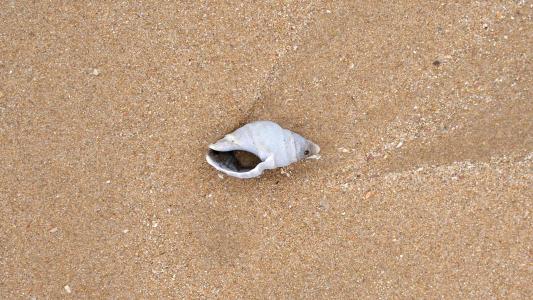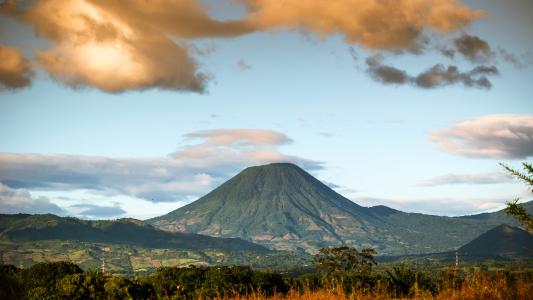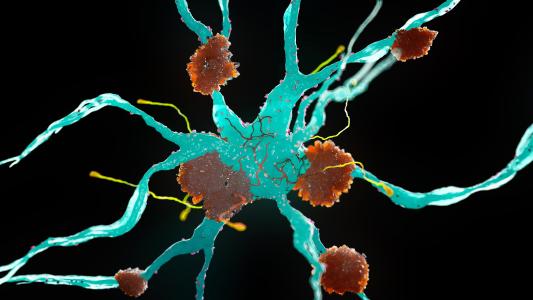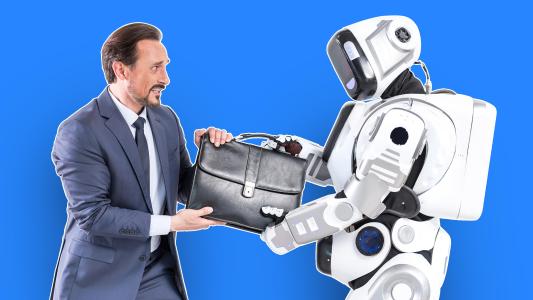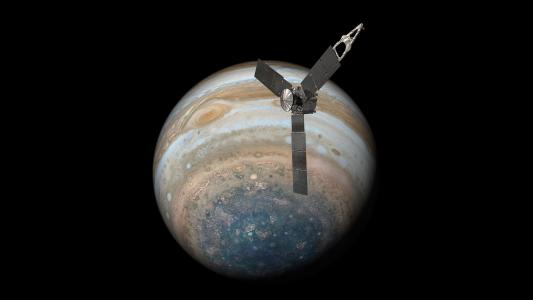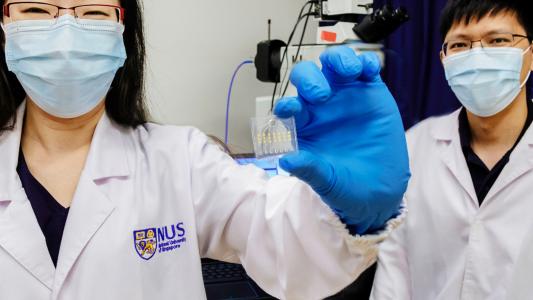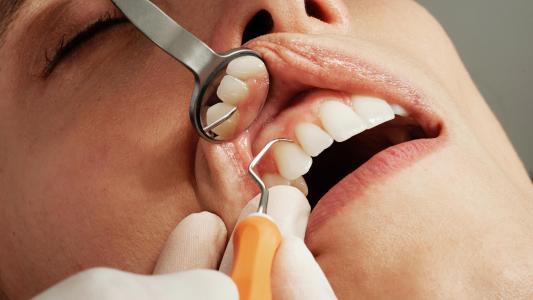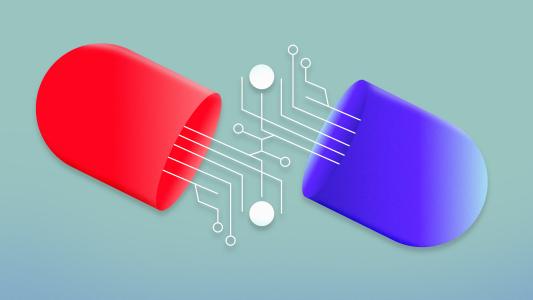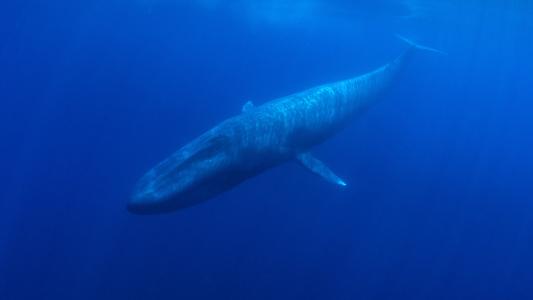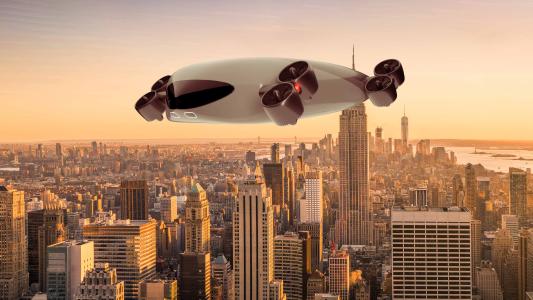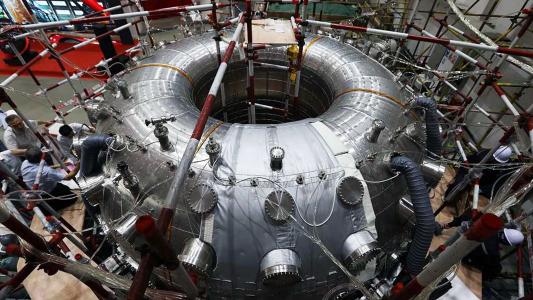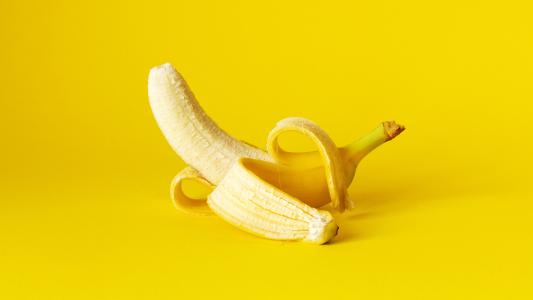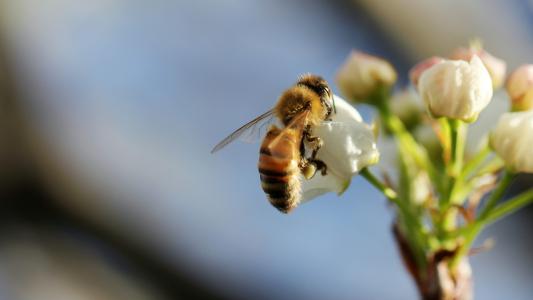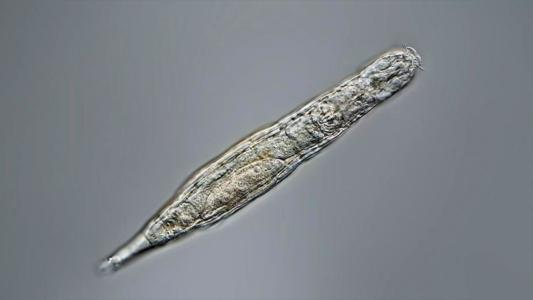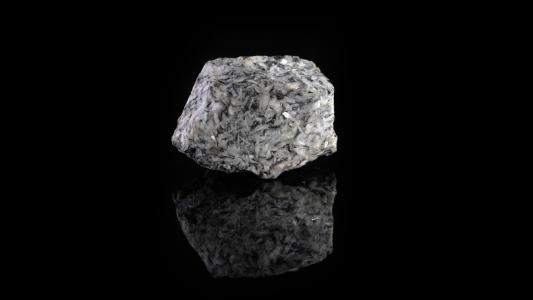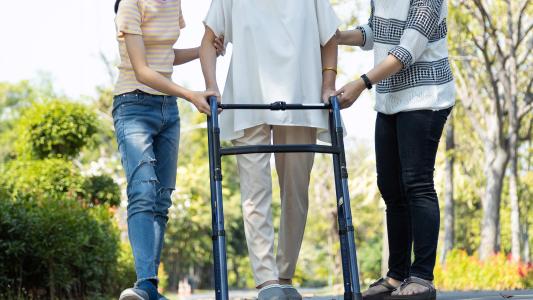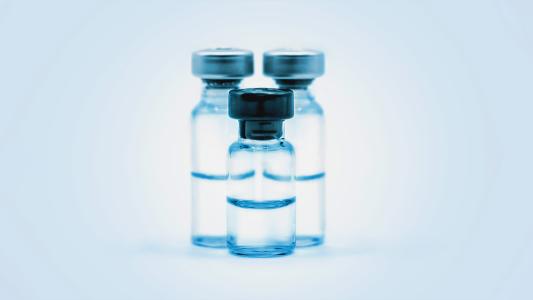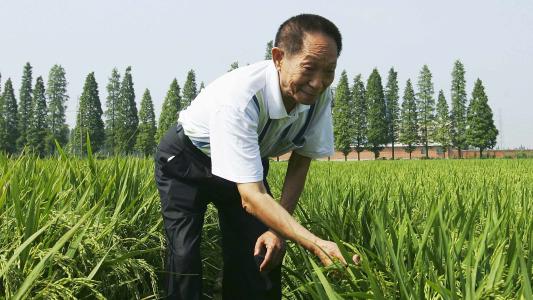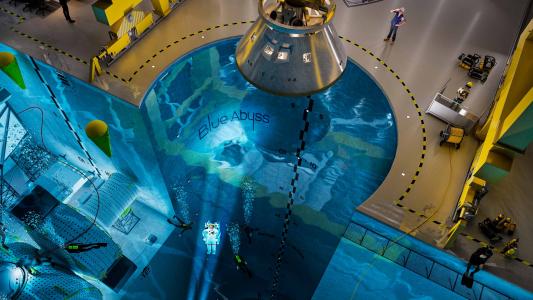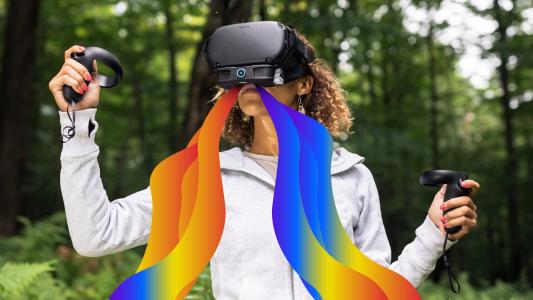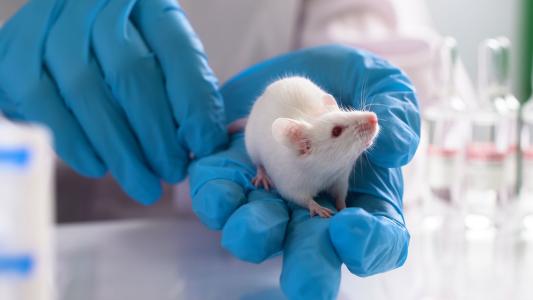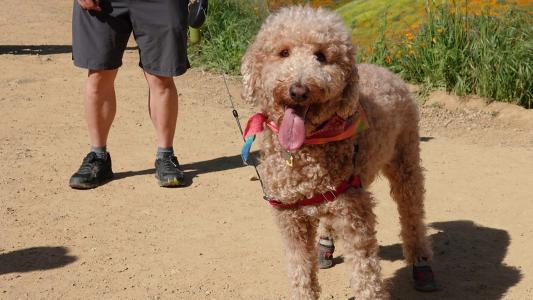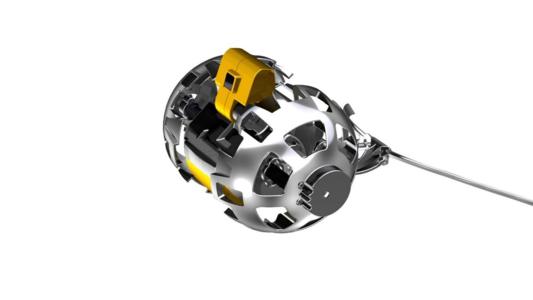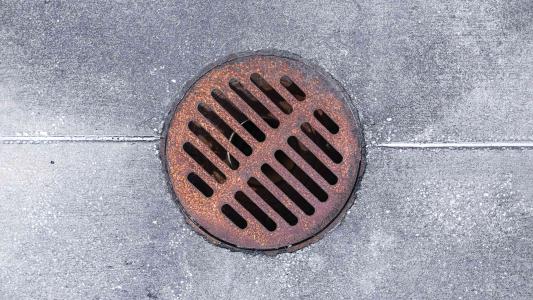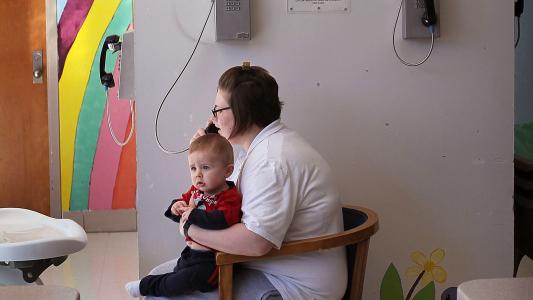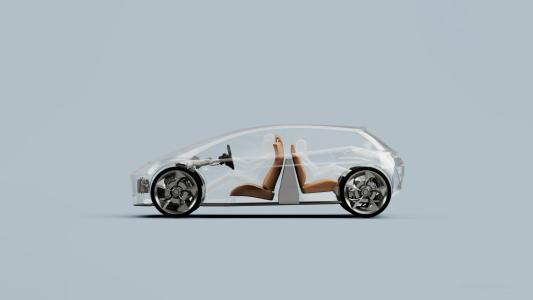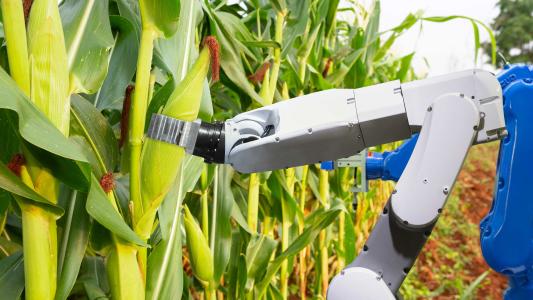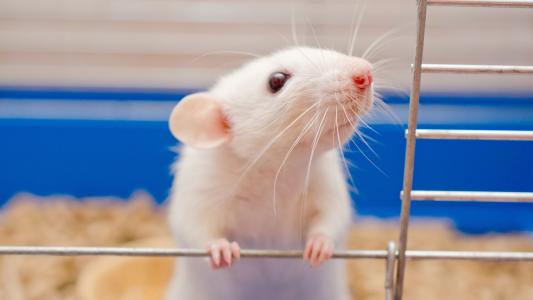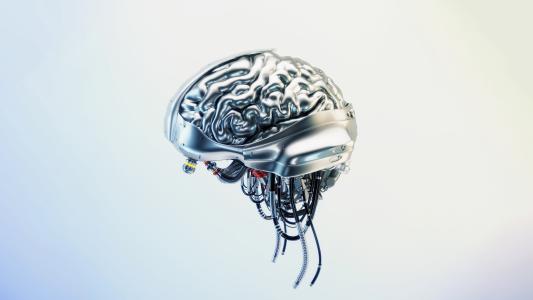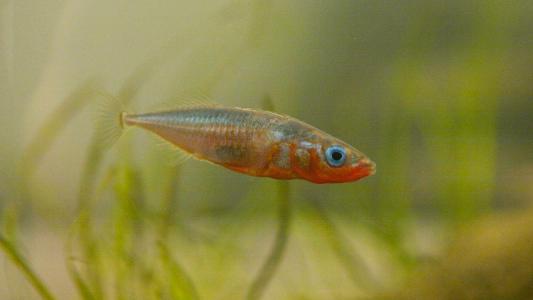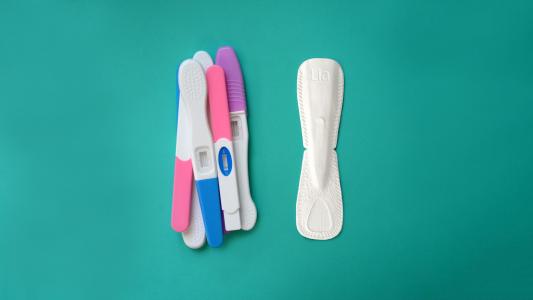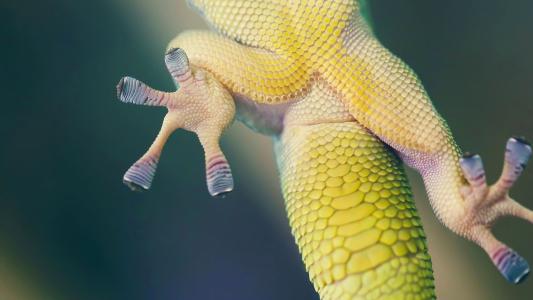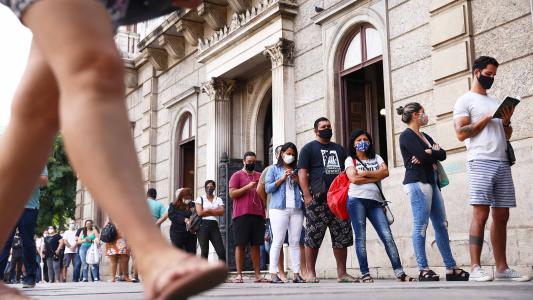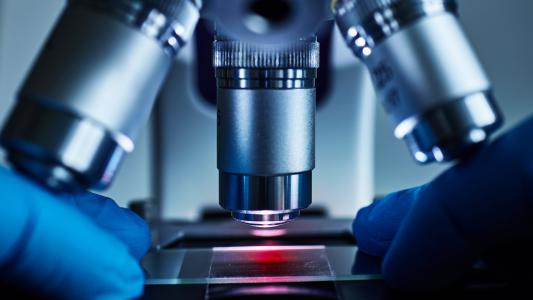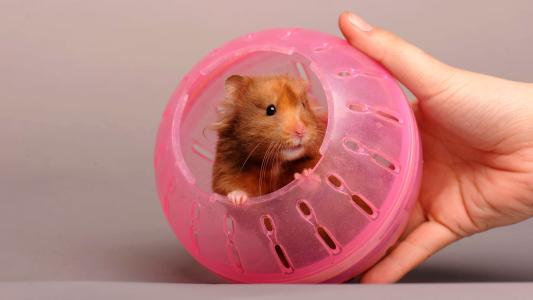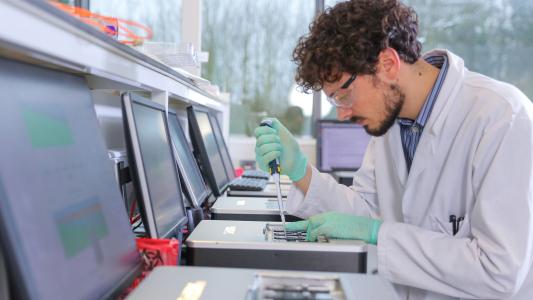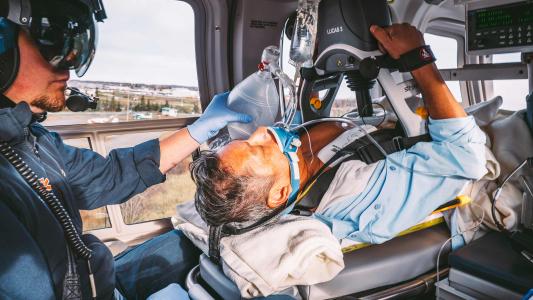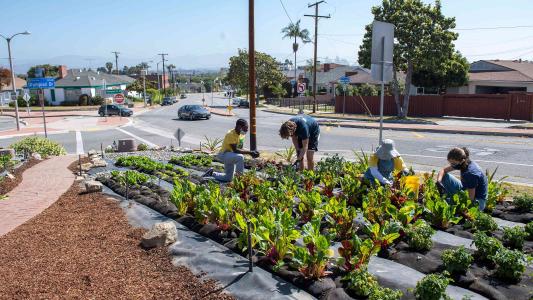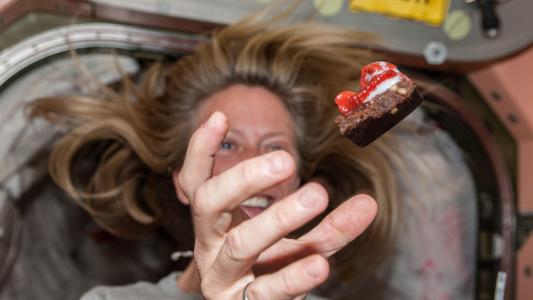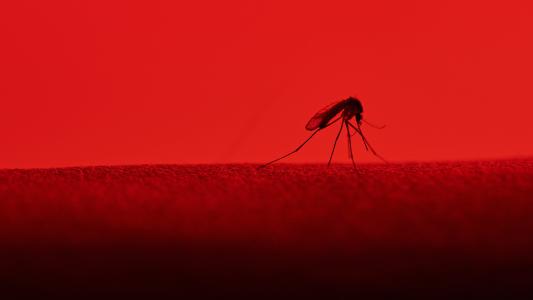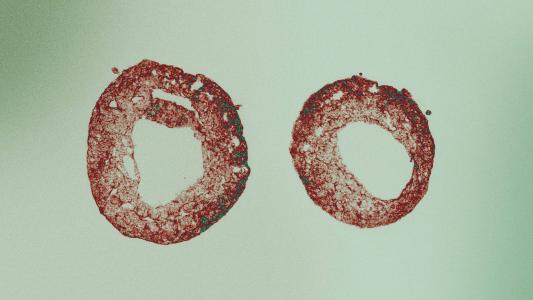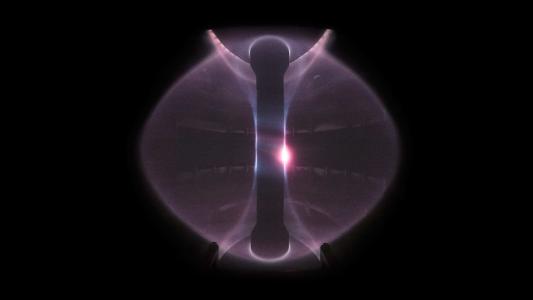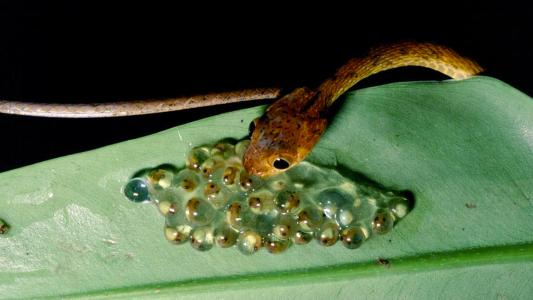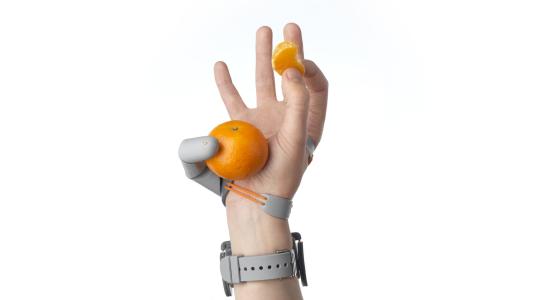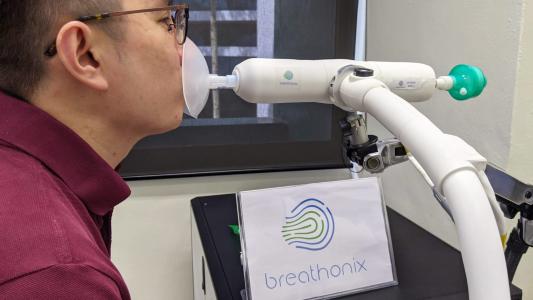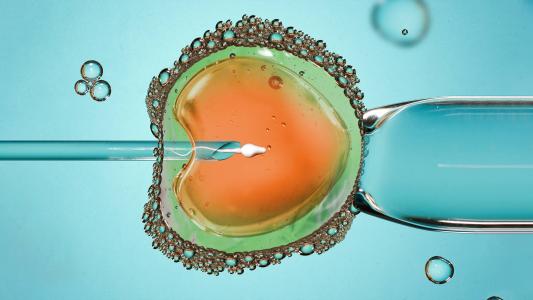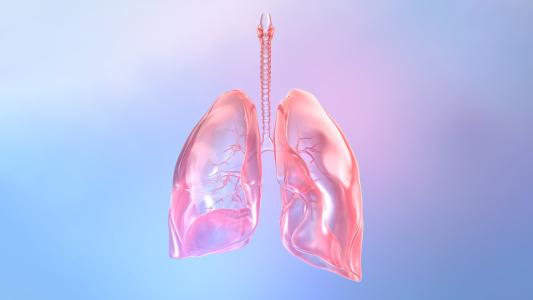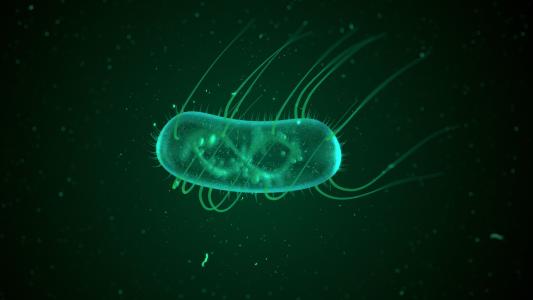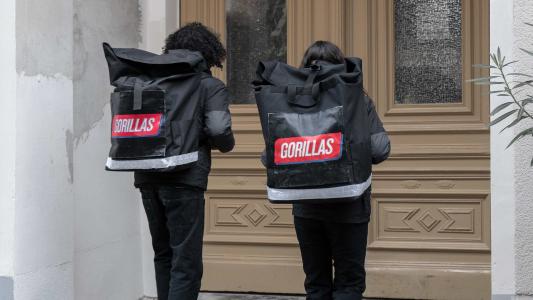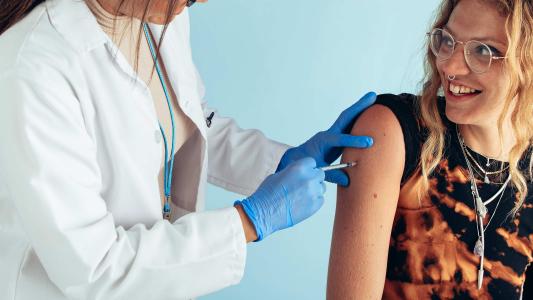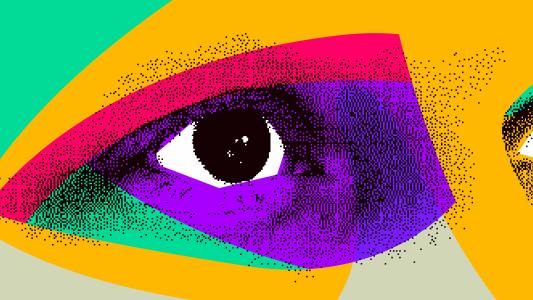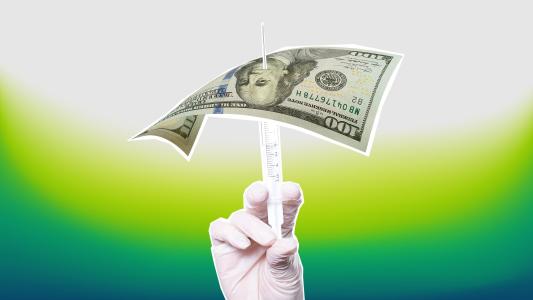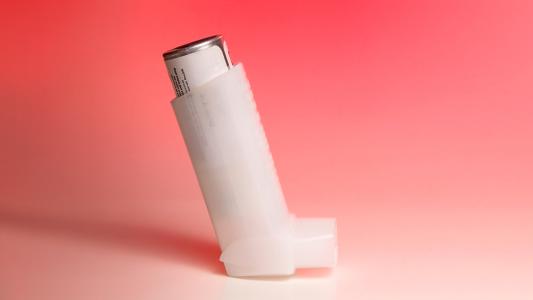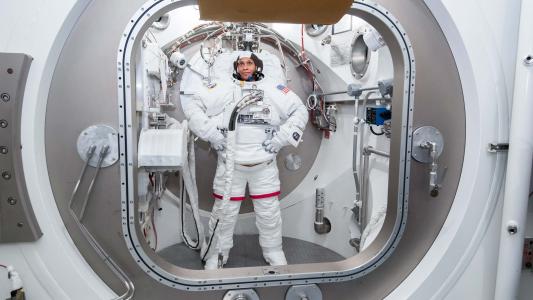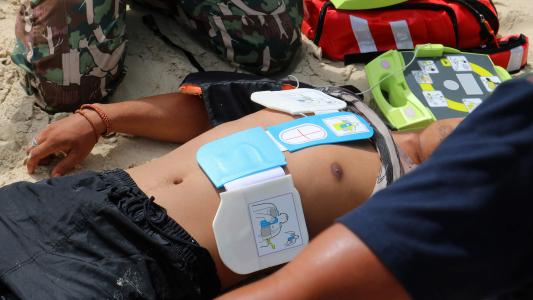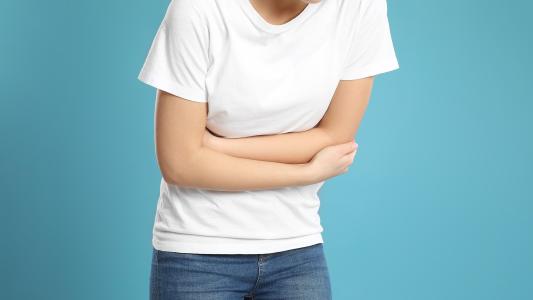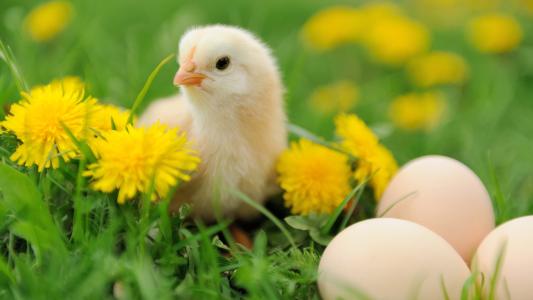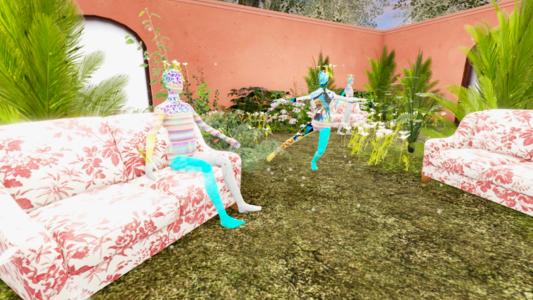Cultured meat is now being mass-produced In Israel
Israeli startup Future Meat Technologies’ industrial-scale cultured meat production facility is designed to get lab-grown meat onto consumers’ plates ASAP.
Is it time for America to bring back the boarding house?
A revival of the boarding house — popular in the 1800s, banned by modern zoning — could help solve America’s affordable housing woes.
Treatment appears to stop Alzheimer's in monkeys
NYU researchers have modified monkey’s immune system to slow their equivalent of Alzheimer’s disease and improve their cognition.
Urine test for brain cancer detects tumors of any size
A new urine test for brain cancer analyzed microRNAs to correctly identify 100% of patients with brain tumors, regardless of their tumor’s size.
Low doses of nitrous oxide may treat depression
A new, small study has found that low doses of nitrous oxide — laughing gas — can treat symptoms of depression.
See the first 3D map of the heliosphere
Astronomers have created the first ever 3D map of the heliosphere, using satellite data to reveal the part of the universe influenced by our sun’s solar wind.
MIT researchers can fit more drug in less pill
A new drug formulation method developed by chemical engineers at MIT can fit more drug into less pill.
Surgeons can now practice on a 3D-printed copy of your liver
A new technique for creating life-like 3D-printed livers based on individual patients’ scans could help surgeons be better prepared for operations.
We may have a new ally in the fight against dengue fever
A large trial has provided the best evidence yet that infecting mosquitoes with Wolbachia can help reduce dengue infections.
Snails wearing smallest computer solve extinction mystery
The world’s smallest computer was used to figure out why one species of snail survived a situation that pushed more than 50 others into extinction.
Many amputees couldn’t afford a bionic arm — until now
Indian startup Makers Hive has developed a bionic arm that’s not only 90% cheaper than most, but also more functional.
How lasers will create ‘uncrashable’ cars
Luminar is using lidar to build smarter and safer autonomous vehicles.
New Chinese space station receives first astronauts
The new Chinese space station has received its first crew, a huge milestone for a project that began nearly 30 years ago.
Beer hops could hold key to preventing common liver disease
Compounds derived from hops might be able to help prevent — or even treat — nonalcoholic fatty liver disease (NAFLD) in people.
A robot could save farmers from being buried alive in grain
The Grain Weevil robot helps farmers manage stored grain, keeping them out of bins where they might lose their lives to grain entrapment.
Green sand beaches could erase carbon emissions
By spreading green sand all over a Caribbean beach, Project Vesta hopes to pull tons of carbon dioxide out of the atmosphere and lock it away for eons.
Major airlines preorder hundreds of flying taxis
Several major airlines have preordered Vertical Aerospace’s in-development flying taxis, suggesting the industry views eVTOLs as the future of urban mobility.
A virus "chimera" reveals new dengue targets
Using a flavivirus that only infects insects, Australian researchers can safely study more dangerous viruses.
New kind of nuclear reactor to be built at retiring coal plant
TerraPower, a nuclear power startup founded by Bill Gates, has announced plans to build a new kind of nuclear reactor at a retiring coal plant.
McDonald’s is replacing human drive-thru attendants with AI
McDonald's just rolled out a voice recognition system at 10 drive-thrus in Chicago.
Two opposite kinds of stroke. One promising treatment.
A new stroke treatment could give doctors a way to help victims sooner, improving their chances of avoiding permanent brain damage.
How subterranean microbes are devouring carbon emissions
Researchers at Pellissippi State Community College found naturally occurring microbes deep in the Earth’s crust are helping soak up CO2.
Lithium mining just became a water sport
A team of scientists claims they’ve created an affordable method for extracting lithium from seawater, as an alternative to lithium mining.
3D-printed liver tissue may be first step to lab-grown organs
A NASA challenge designed to accelerate tissue engineering has announced two winning teams, both of which used 3D bioprinting to create human liver tissue.
Flickering screens help kids with reading disabilities
Adding visual white noise to computer screens appears to help children with reading disabilities read and recall words written on them.
Google and Harvard have created the most detailed brain map yet
Google and Harvard have released the most detailed map yet, called a connectome, of a section of the human brain.
Neck-zapping device helps sleep-deprived soldiers think
A handheld device that delivers vagus nerve stimulation was shown to combat the effect of sleep deprivation in soldiers.
Did the flu lose diversity during the pandemic?
After a record-low flu season, an entire clade of flu may be gone. If so, making vaccines may have become easier.
Ion propulsion will power new space station
China's new space station will get a boost from an ion propulsion system, making it the first crewed spacecraft to feature the sci-fi-sounding engines.
This machine will make seashells out of CO2
Scientists are building a machine that will suck carbon dioxide out of the ocean and turn it into seashells.
Astronomers find more than 100,000 "stellar nurseries"
The biggest survey of stellar nurseries to date, PHANGS-ALMA, charts more than 100,000 star formation regions across our corner of the universe.
Volcanoes to power bitcoin mining in El Salvador
Now that bitcoin is legal tender in El Salvador, the nation is working to power bitcoin mining facilities with geothermal energy harnessed from volcanoes.
Bacteria are cleaning Michelangelo's Reanaissance sculptures
Faced with stubborn, literal stains of the family’s violent past, the Medici Chapel has used bacteria to clean Michelangelos.
Hope and controversy: FDA approves first new Alzheimer's drug in decades
The FDA has approved the first new Alzheimer’s drug in decades, but the decision brings not only hope, but controversy.
Can AI negotiate? Walmart is betting on it
AI startup Pactum is trying to save big companies millions with AI negotiation.
NASA probe snaps stunning photos of Ganymede
NASA has shared new photos of Ganymede taken by the Juno probe when it was just 645 miles away from Jupiter’s icy moon.
Blood test can quickly tell if a targeted cancer therapy works
The ExoSCOPE blood test can determine with 95% accuracy whether a targeted cancer therapy is working within 24 hours of administration.
Want strong teeth? Eat this candy.
Researchers claim to have invented an experimental breath mint that may renew tooth enamel and strengthen teeth, and it’s already headed into human trials.
This high schooler created a drug discovery search engine
While looking for drugs to potentially fight Alzheimer’s, a high school researcher's AI did “comically” bad, until he thought of it as a search engine.
Bomb detectors record rare pygmy blue whales singing
Underwater microphones used to listen for signs of nuclear bomb testing have captured the singing of a population of rare pygmy blue whales.
Can a 40-seat drone bus get off the ground?
Startup Kelekona is developing an electric vertical takeoff and landing (eVTOL) vehicle capable of carrying 40 passengers at once.
China’s “artificial sun” sets a new record for nuclear fusion
China’s nuclear fusion reactor, the Experimental Advanced Superconducting Tokamak (EAST), has set a new world record for temperature.
Disease-resistant banana created with CRISPR
African scientists have used CRISPR to create a disease-resistant banana that is indistinguishable from unmodified plants.
Antidote saved 100% of bees from lethal pesticide
Beehives are under threat from common insecticides. But researchers created pollen-like microparticles to deliver an antidote.
Microscopic animals revived after 24,000 years in permafrost
A multicellular animal called the bdelloid rotifer has used cryptobiosis to survive in the Siberian permafrost for at least 24,000 years.
Startup plans to remove 1 billion tons of CO2 from the air
A new carbon sequestration startup plans to remove one billion tons of excess carbon from the atmosphere by 2035 using enhanced mineral weathering.
Vibrating “thimble” could improve balance in seniors
A wearable that delivers a painless vibration to a person’s fingertip if it senses postural sway could one day help improve balance in seniors.
Moderna COVID-19 vaccine 2.0: Lower dose, fewer side effects
Any revised version of the Moderna COVID-19 vaccine will likely include a smaller dose, reducing side effects and increasing the supply of shots.
Yuan Longping: His rice helped feed the world
Scientist Yuan Longping's hybrid rice helped feed the world. His wild rice discoveries and hybrid rice inventions in the 1960s and 1970s helped alleviate food scarcity across Asia and Africa.
The world’s deepest pool will host astronaut training in the UK
U.K. company Blue Abyss has submitted plans to build a massive aquatic facility in Cornwall, England, and its centerpiece will be the world’s deepest pool.
VR aromatherapy might be coming to a headset near you
VR smell can be used to improve immersion—and possibly even mental health.
Editing one gene extends mouse life expectancy by 23%
By modifying just one gene, researchers were able to extend the life expectancy of mice by 23%, and they think their results may translate to humans.
Can a dog vaccine for Valley fever lead to a human one?
Cases of Valley fever, a fungal infection, have risen dramatically over the decade. Researchers hope a dog vaccine may lead to one for humans.
The Maldives are constructing a floating city to combat rising sea levels
Government officials of the island nation, Maldives, debuted plans to build the world's first fully floating city.
Japan’s transforming moon rover gets help from toy company
Japan is sending a transforming moon rover to the lunar surface in 2022 to collect data that will inform an upcoming crewed mission.
“Sewer heat” could help fight climate change
Denver plans to tap into the heat in sewer lines to generate clean energy.
Minnesota stops separating newborns and incarcerated mothers
The Healthy Start Act makes Minnesota the first state to stop the practice of separating incarcerated mothers from their newborns soon after delivery.
Vertical EV battery may cut costs, improve range by 30%
U.K. startup Page-Roberts proposes using a vertical EV battery to improve a car’s efficiency and cut manufacturing costs.
"Hands-free" smart farm will replace laborers with robots
At a smart farm in Australia, robots and AI will do all the manual labor, potentially foreshadowing agriculture’s "hands-free" future.
A small dose of an ibogaine-like drug cures stress in mice
A novel drug designed like ibogaine but without the ibogaine trip or toxicity has corrected the effects of stress in mice.
NASA announces first missions to Venus since the '80s
NASA has just approved two missions to Venus that will provide the scientific community with a wealth of new data on Earth’s closest planetary neighbor.
What happens when your brain imagines the future?
Research out of the University of Pennsylvania suggests imagining the future is a two-brain region job.
Genes show which animals will adapt to climate change
Some fish, such as the threespine stickleback, can respond to dramatic seasonal changes very quickly — genome sequencing reveals why.
United will buy 15 supersonic jets
United Airlines has agreed to buy 15 supersonic jets from Boom Supersonic, with plans to begin commercial flights before the end of the decade.
Colorful clouds on Mars captured in new rover pics
NASA’s Curiosity rover has captured images of colorful clouds on Mars, forming at higher altitudes and earlier in the Martian year than expected.
New pregnancy test made from paper is flushable, biodegradable
A team of women has developed a flushable, biodegradable pregnancy test, which is finally available to...
Gecko gripper could clean up space junk
The Earth is circled by a sea of space junk, and it poses a danger to satellites and astronauts. We know we should...
Mass vaccination experiment was a huge success in Brazil
A mass vaccination experiment in Brazil suggests that even a moderately effective vaccine can have a dramatic effect if enough people get the shot.
"Light-shrinking" material cranks normal microscopes up to 11
Researchers have developed a light-shrinking slide coating that allows light microscopes to image in “super-resolution.”
Inhaled nanobodies treat COVID-19 in hamsters
An inhaled nanobody treatment for COVID-19 has shown promise in animal tests and could be a more affordable alternative to monoclonal antibody drugs.
The entire human genome has (finally) been sequenced
Researchers have finally sequenced the complete human genome, filling the gaps in the Human Genome Project’s historic first draft.
Robot paramedics are bringing mechanical CPR to the UK
An English ambulance service has begun using robot paramedics to deliver mechanical CPR to patients.
Microfarm startup brings fresh produce to food desert
California startup Crop Swap LA has planted a “microfarm” in an LA resident’s front yard and is now distributing the crops throughout the local community.
Fridge for astronaut food aces first flight tests
Purdue University engineers have designed a fridge for astronaut food that could double its shelf life, potentially overcoming a barrier to longer missions.
Dengue fever vaccine still protects after three years
A dengue fever vaccine candidate by Takeda is still effective after three years in a large human study, raising hopes for fighting the virus.
New lab-grown mini hearts have a human-like beat
Researchers created the first human mini heart in the lab. The mini hearts, called cardioids, have developed distinctly beating chambers, which fire in sync.
New nuclear fusion test overcomes “exhaust problem”
The UK’s MAST Upgrade nuclear fusion experiment appears to have solved the “exhaust problem,” a major hurdle to harnessing fusion power on Earth.
Are we really addicted to technology?
Simplifying very complex things can lead to real harm.
Birds, frogs, and reptiles use sound to “program” embryos
Sound appears to play a larger role in animal development than previously thought, affecting how a variety of species prepare for life outside the womb or egg.
Remote Work Is Reversing the Brain Drain
Rural economies can now lure top talent away from big cities and affluent countries — could this be the reverse of the brain drain?
Will human augmentation move too fast for our brains?
To show how human augmentation can affect the brain, participants in a new study underwent fMRIs after learning to use a prosthetic called the "Third Thumb."
These cartographers screwed up — but their error preserved Minnesota's oldest forest
A 19th-century surveying mistake kept lumberjacks away from what is now Minnesota's largest patch of old-growth trees.
One-minute COVID-19 breath test authorized in Singapore
Singapore has provisionally authorized a COVID-19 breath test that measures VOCs to deliver accurate results in just one minute.
"Defective" embryos can actually self-correct in the womb
PGT-A, a genetic test used to screen embryos for aneuploidy prior to in vitro fertilization, appears to be excluding many viable options.
Inhaled CRISPR treatment tackles COVID-19, flu
An inhaled CRISPR treatment can be easily tweaked to attack a variety of viruses, from the one that causes the flu to the coronavirus behind COVID-19.
Liverpool and DeepMind are bringing AI to the beautiful game
AI in sports has taken off in recent years. Now, Liverpool and DeepMind are teaming up to see how AI may impact the world’s most popular sport.
Human lifespan may have a hard limit: 150 years
The human lifespan is limited to 150 years, according to a new longevity study focused on the body’s ability to bounce back from stressful events.
These bacteria grow biodegradable “Aquaplastic”
Scientists genetically modified E. coli to create a plastic called "aquaplastic," which can be transformed into a three-dimensional shape just by adding water.
10-minute grocery delivery service to debut in U.S.
German grocery delivery startup Gorillas, which delivers orders within 10 minutes, is bringing its ultra-fast operation to the U.S.
Predicting your protection against COVID-19
Australian researchers have found an immune response measurement they believe can predict protection against COVID-19.
Gene therapy and special goggles partially restore man’s vision after 40 years
Researchers have demonstrated that restoring limited vision to people suffering from retinitis pigmentosa, a historically permanent type of blindness, is within reach.
Ohio announces $1M vaccine lottery, shots surge 33%
Ohio’s vaccine lottery, which will give five vaccinated residents $1 million each, appears to have sparked the desired increase in new vaccinations.
The first steps towards an allergic asthma vaccine
French researchers have shown an allergic asthma vaccine to be effective in mice. The next step: human clinical trials.
Discovery Channel is looking for wannabe astronauts
The winner of Discovery Channel’s new astronaut competition series, “Who Wants To Be an Astronaut?” will spend eight days aboard the ISS.
Can an app save cardiac arrest victims before EMS arrives?
In Denmark, Heartrunner directs citizen responders to cardiac arrest victims. Should the U.S. adopt a similar approach?
See the most realistic simulation of star formation yet
A new simulation of star formation is the most realistic ever created, giving scientists an unprecedented opportunity to study the birth of a star.
Can new drugs make obesity a medical — not moral — condition?
Researchers are hopeful that a class of drugs called incretins will not only treat obesity, but help people think of it as a medical condition.
IBS treatment app helps patients reprogram their minds
An IBS treatment app that facilitates cognitive behavior therapy helped trial participants manage symptoms and improve their quality of life.
CRISPR could save billions of baby chicks before they hatch
Male chicks are killed as soon as they hatch, in a gruesome process called chick culling. Gene editing could save them.
Virtual Gucci and the future of digital fashion
Game platforms like Roblox point to the future of digital fashion and personal expression.
